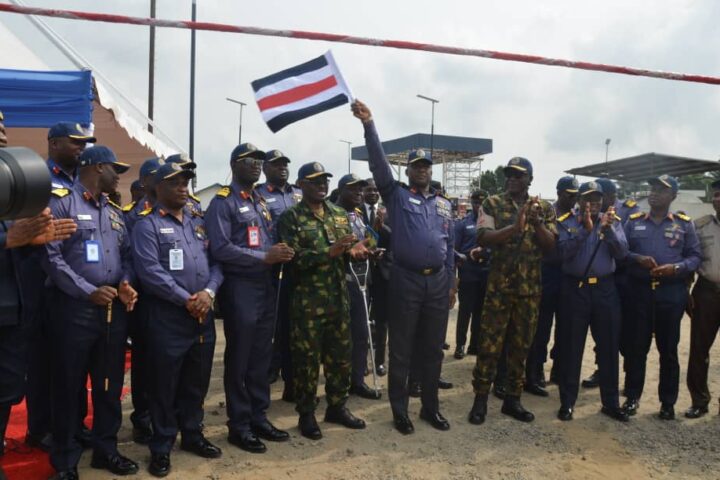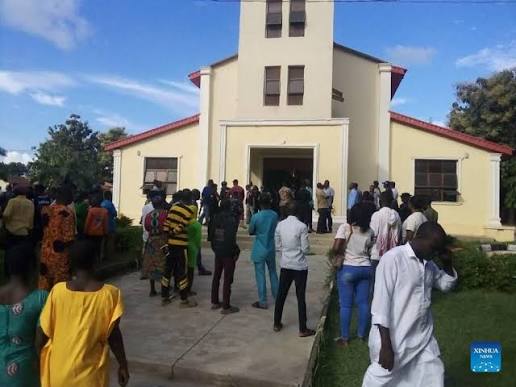Mohammed Shosanya
The Chairmen of the House of Representatives Committees on Petroleum Resources, (Downstream, and Midstream), Hon. Ikenga Imo Ugochinyere and Hon. Odianosen Henry Okojie, confirmed the arrival of petroleum products in the country.
At a press conference in Abuja,they noted disruptions in supply and distribution to marketers due to logistical challenges with marine shuttle vessels. They assured the public that these challenges have been addressed, and product distribution has resumed, emphasizing that fuel queues will diminish in a matter of days.
They advised against panic buying, assuring the public of product availability.
They also expressed concerns over the temporary fuel queues affecting Nigerians’ lives and businesses but remained optimistic that normalcy would soon be restored.
Ugochinyere, representing Ideato North South Federal Constituency of Imo State, highlighted recent efforts by the downstream and midstream committees to address the resurgence of fuel queues nationwide.
Through extensive engagement with stakeholders in the distribution value chain, including NNPC, the Nigerian Midstream and Downstream Petroleum Regulatory Authority, Petroleum Products Retail Outlets Owners Association of Nigeria, and NARTO, investigations revealed an availability of approximately 1.5 billion litres of petrol, sufficient for 30 days.
But,logistics challenges, such as difficulties in transporting products from mother vessels to petrol stations, have contributed to the queues’ resurgence.
The lawmaker has assured that they’ve received assurances from regulators across the value chain that bottlenecks are being addressed.
Ugochinyere expressed regret over the recent scarcity of petroleum products, highlighting the hardship faced by Nigerians.
He said, “As representatives of the people, they have engaged with sector regulators to identify the causes and propose solutions to alleviate this situation.
“We have recently engaged with key stakeholders in the distribution value chain, including the NNPCL, NMDPRA, PETROAN, and NARTO, to understand the resurgence of fuel queues across Nigeria. We share concerns over its impact on Nigerians’ lives and businesses, but we’re optimistic it’s temporary.
“Our investigations reveal sufficient petrol stocks of about 1.5 billion litres, lasting 30 days. However, logistical challenges caused the queues. Regulators assure us these bottlenecks are being addressed, with progress expected over the public holiday.
“We urge Nigerians not to worry; regulators and unions assure us of resolution within the next two to three days. Restoring normalcy may take a bit longer as products are distributed nationwide. As a Committee dedicated to alleviating people’s suffering, we’re closely monitoring the situation.”
“At this critical juncture, we strongly condemn the actions of middlemen exploiting the supply disruption to profit at the expense of our citizens. We call upon the security forces to collaborate with NNPCL, NMDPRA, PETROAN, NARTO, and other vital stakeholders in the distribution chain to detect and address acts of economic sabotage, including hoarding, price gouging, product diversion, and smuggling.
“We extend our appreciation to Speaker Abbas Tajudeen for his proactive stance and the diligent efforts of our Committees in liaising with regulators and industry stakeholders.
Beside,the Chairman of the Midstream Committee, Okojie, urges Nigerians to avoid panic buying and unnecessary rushes, reassuring the public that the country’s storage capacity of over 1.5 billion litres can sustain us for over 30 days.
Providing update on the current situation,he said:”Our committee has extensively engaged with relevant authorities regarding fuel distribution. As of today, reports indicate a reduction in fuel queues, and products are steadily arriving at petrol stations.”
“We are appealing to Nigerians to refrain from panic buying and unnecessary rushes to purchase products. Our country currently has a storage capacity of over 1.5 billion litres, which is sufficient for over 30 days. Moreover, additional products are arriving, with more en route via the high seas.
“The recent disruption was primarily due to logistical challenges, which have since been addressed with the implementation of maritime shuttle vessels. These vessels are now transporting products to awaiting marketers, who are ready to serve the public. The logistical issues have been fully resolved, and we anticipate an increase in supply to stations in the coming days.
“There is no cause for alarm. Fuel is readily available, and distribution will commence shortly. We expect that within the next day or two, fuel queues will be a thing of the past in our country.”
















